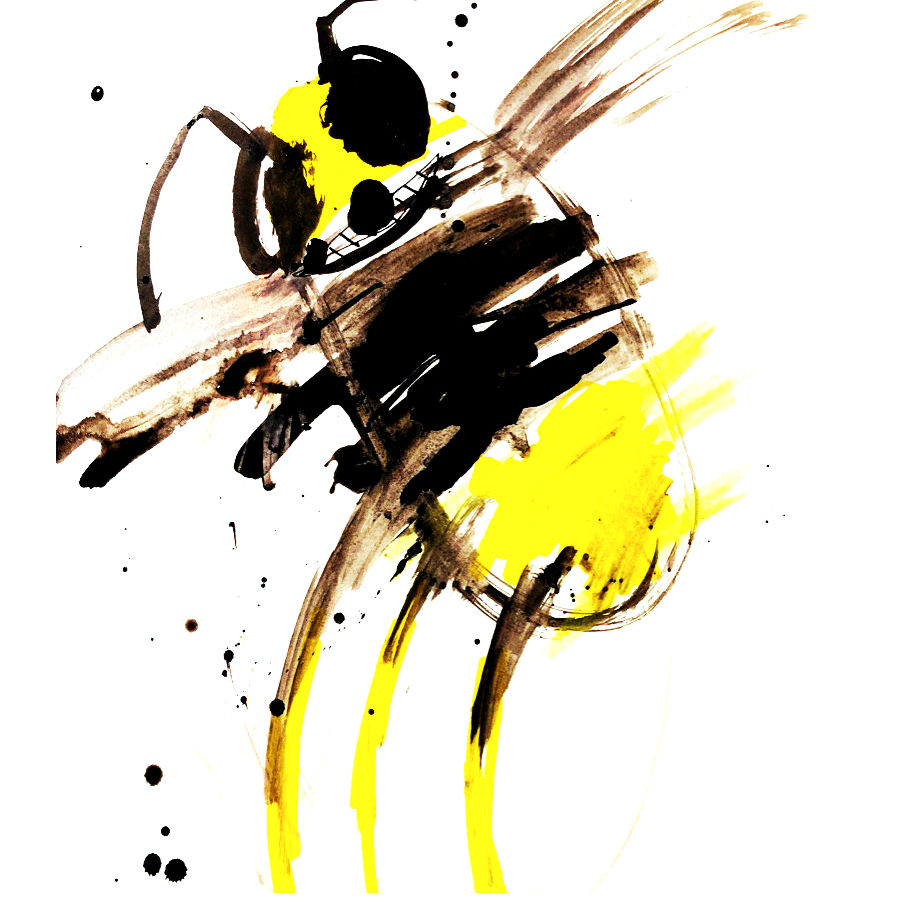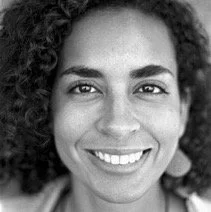Lest mehr ugandische Bücher! - Gespräch mit Beatrice Lamwaka
Ich habe Beatrice Lamwaka auf einer Ausstellung des Kunstprojekts “STREETWARE saved item” initiiert durch die Berliner Künstlerin Barbara Caveng kennengelernt. Auch Beatrice war als Podiumsgast eingeladen und begleitete das Projekt. Wir verabredeten uns im She Said Bookstore auf einen Kaffee, um uns über ihr Schreiben, ihren Aktivismus und queere Literatur in Uganda zu unterhalten. Dieser tolle Laden hatte zufällig auch ihre letzte Publikation auf dem Ladentisch, die Kurzgeschichte “Chief of the House” in der Anthologie Queer Africa: New and Collected Fiction, die ich mir gleich zulegte und euch sehr ans Herz legen kann. Hier findet ihr unser Gespräch, das wir auf Englisch geführt haben.
Beatrice Lamwaka und Wepsert-Member Alisha Gamisch fröhlich über die Entdeckung der Queer Africa Anthologie im She Said Bookstore.
AG: Hi Beatrice. First of all: How do you like your time in Berlin?
BL: Well, it‘s November and it‘s really cold. I haven‘t really done much apart from hiding in my room, so I could get some warmth.
AG: So you‘ll have to come back in summer.
BL: Oh you know, this is my third time in Germany, and all three times it has been really cold...so I don‘t know… do you have warm weather?
AG: (laughs)We do have warm weather, but you have to be lucky. In June, July and August the chances could be pretty good.
BL: I‘d love to experience that, I think I‘d definitely have more fun in warm weather. My intention was also to go to museums, for example, to visit our African artifacts at Humboldt Forum. But then, it was so cold.
AG: Oh gosh, there were a lot of protests and discussions on this exhibition here, but the authorities just don’t get it.
BL: Yeah, there should be no question about it, they should return it.
AG: I fully agree. So you are in Berlin, because of the Streetware Project, how did you come to participate?
BL: I met Barbara [Caveng] in Schöppingen, the artist‘s residency, and we connected. Together we developed a project around the issue of washing clothes in Uganda... we came up with the idea to document women‘s stories during washing clothes. What‘s their experience, how do they feel, what‘s their story? I was able to speak to a number of women, who talked about their experiences. It came up how a lot of them really don‘t like washing, how it keeps them from doing their actual work, but washing machines are really expensive, so they have no other option as washing by hand.
And then we connected this issue with the issue of second hand clothes as they are having a great impact on our markets in Uganda, the Textile Industry is dead, because the cheap second hand clothes from Europe and the US are flooding our markets. For the price of this coffee [points at our oat milk cappuccinos] you can buy a second hand dress and you won‘t buy a dress from a local dress maker. And they also mess up our environment, because people don‘t know how to dispose the clothes, so they are dumped somewhere. If they are not bought, people are burning them, having a bad effect on their health, some are found buried deep in the ground, poisoning the soil. We need to have a discussion about that and find a solution as soon as possible.
AG: That‘s something I don‘t think a lot of people are aware of. How second hand clothes have a global dimension.
BL: Yeah, they think, I will do something good, I will donate to Africa, but actually they are doing damage.
A lot of people have been persecuted for what they have written, that means that people are also reading what we write and the writing is making an actual effect which is a good thing.
AG: Let‘s start talking about your writing. So you are working as a journalist, as a writer and an activist as well...
BL: I wouldn‘t say that I work as an activist, it is more something that I just do, not that I‘m denying it (laughs)…
AG: In a text for PEN Outwrite you wrote: “There may be many untold stories in Uganda because many people are afraid to lose their freedom. We live in an oral culture, where stories are passed on from one generation to the other. With word of mouth, one can deny it, but with written and published work the law can catch you.”
BL: I find it important to write down, to document, but I can tell you that now in Uganda there are a lot more people writing than there were in the 80s or 90s and a lot of books are being published. And a lot of people have been persecuted for what they have written, that means that people are also reading what we write and the writing is making an actual effect which is a good thing.
The Queer Anthology was published in South Africa, but it was during the time when they made the terrible law against the LGBTQ-community in Uganda and I was like: Oops, I have a piece coming out in a queer anthology, what does that mean, how will it effect me? It was a time when the atmosphere in Uganda was like: Kill gay people - it was that terrible. And if you knew someone who was gay then you were also likely to be punished for not reporting them to authorities. And here I was with a story in a queer anthology. But then nothing really happened to me.
AG: How do you decide where you publish your texts?
BL: Most of the publishers in Uganda are focusing on textbooks for education, that‘s where they get their money, fiction isn‘t that popular with Ugandan publishers. So I publish where ever I can, I have self-published a collection of short stories. Recently, a publisher from Sri Lanka was interested in some of the stories I had written, so the collection will be published in Tamil. My stories have been published in many different languages. That‘s something I could have never ever imagined, that my stories would be translated into Tamil? Never ever. (laughs)
AG: I find it fascinating what happens when you give texts out to the world and people actually respond to them.
BL: Yes, I always find it interesting what the readers‘ impression of my stories is. They had some of the stories illustrated in the Sri Lancan collection, so you can see their interpretation of my stories in the illustrations. I like whichever way my readers read my story, how they interprete it, I like to say: it‘s up to you now, I did my part.
Being part of a collective is just great, because writing is such a lonely job, and sometimes you have no idea in which direction you are going.
AG: How do you promote your stories ?
BL: I belong to a women writers’ organisation it‘s called Femrite. It‘s basically women coming together supporting each other to write, providing other women with information, to train them to write better, to publish them. That sisterhood, that friendship within Femrite is very important to me. Being part of a collective is just great, because writing is such a lonely job, and sometimes you have no idea in which direction you are going.
AG: I feel the same, you need these collectives, especially in a system which doesn’t make it easy for women. Often your self-doubts are killing you and when you have supportive people around you, they can help you to set it right.
BL: Yeah, people who tell you, just don‘t stop, work on it, but don‘t stop.
Kisitu Aloysious Musanyusa und Beatrice Lamwaka auf Spreefahrt im Rahmen des Streetware Projekts Berlin (c) Charlotte Seebeck.
AG: Have you always wanted to be a writer?
BL: No, in the beginning I just loved to read books. Later, when I studied literature at University, I found out about Femrite. I went to their office and they asked me: so you are interested in writing? Well, come. I had no story then, I had written nothing. But I became a member, I attended workshops and then I wrote my first story. They said, we‘ll publish it and that‘s how I got published and since then it‘s been growing.
The attitude towards queer writers is often difficult, I have heard people say obnoxious things about queer or female writers, a lot of these people were male.
AG: In the literary groups around me, we talk a lot about how different perspectives can get more attention and plurality in main stream literature, like queer, POC, disabled, Muslim, Jewish, working class perspectives. Is this something you also discuss in your circles?
BL: Yes, we discuss a lot about it. At the moment there is a focus on African literature. I founded this book club where we focus on reading mainly African literature. We see that everywhere in Africa the books that we read, especially in the education sector, are more Western books, so just to acknowledge that there are so many great African writers is our main activism. We have to read them and know them... And now I forgot the question, because I turned and looked at some book.
AG: Yeah all these great books around us are very distracting. So many nice covers (laughs).
BL: Now I remember your question. Yeah, there are discussions on queer writing in Uganda as well. But the attitude towards queer writers is often difficult, I have heard people say obnoxious things about queer or female writers, a lot of these people were male. That they don‘t like to read books by female writers, that we write about queer topics, because we want international attention. That‘s what people want to read in the West, so there‘s no talent required, and so on.
AG: So people say that even within Femrite?
BL: There was this call for queer writing Africa and I remember sharing it with everybody in Femrite and I said: “Please hand in your stories!”, but they didn‘t. I was the only one who contributed, later on there was one other woman who handed in a story and she also won a prize, but most of them weren‘t interested in queer topics. We claim to be Christians, but we are mostly busy judging other people (laughs).
AG: So there‘s still homophobia…
BL: Oh yes, a lot of it. You would hardly find any media house covering issues on LGBTQ topics in Uganda. This terrible law has already messed up the whole system.
AG: Did you get any problems from publishing in the Queer stories anthology ?
BL: Femrite got a call from one of those government people asking: Do you know what these stories are about? And it was definitely not only a question, it was a threat, it said, we are watching you. The government then closed a number of NGOs and organisations and Femrite was one of them.
AG: Is there anything you can do about that?
BL: Not really, except for having discussions with the government so that they will allow it again. Of course it has a lot of effects on us. Before they closed us down, we were working in cooperation with the American embassy, to write stories on women, who have done extraordinary things in Uganda and the US. We have drafts of stories which are hopefully going to be published as soon as Femrite is allowed to work again.
Beatrice Lamwaka (c) Charlotte Seebeck.
AG: So let‘s talk a bit more about your writing. How do you usually start your texts?
BL: I usually play a lot with ideas in my mind, before I start to write it down. Then I do it the old-fashioned traditional way, grab a pen and paper and then scribble, scribble, scribble. It doesn‘t work for me to just sit down at my laptop and immediately start writing, I have a number of ideas in my head now, while we were walking on the street with the Streetware project. I found a piece of cloth and it had written on it: Do not follow your dreams, I loved that (laughs) and now I want to write something about it.
We definitely have to keep writing female characters and sharing our stories, so that more people are able to identify with the things we write.
AG: Is that also how you find your characters?
BL: The characters in a story are very important to me. When I read a book and I love the characters, I will read it till the end, but if I don‘t like them, I will stop. I love people, to watch them, how they do things, I could see someone walk by in the streets and I could be like: That‘s my character, she‘s going to tell my story…. and they don‘t know (laughs). And I prefer to write about female characters.
AG: In an interview I did with a German author, she referred to studies, which have shown that books with female characters get less readers and less prizes than books with male characters…
BL: Yeah, but we definitely have to keep writing female characters and sharing our stories, so that more people are able to identify with the things we write. Whatever they say, it don‘t really matter. Should I stop writing, because I‘m a woman? No. Should I write about male characters all of a sudden? No.
AG: Is it important to you to use real life experiences in your stories?
BL: Yes, it is, in my fiction as well as in my non-fiction writing. At some point you decide, if you‘re able to expose yourself. Usually in conversations, I‘m not very willing to share much about myself, but when it comes to writing I am able to expose my vulnerabilities.
I really encourage to read Ugandan literature, because everybody who turns to African literature is reading Nigerian and South African authors. There are a a lot of Ugandan writers to explore.
AG: Are there any other things you are working on? You once said that you are trying to write a novel?
BL: No, I gave up that idea. I just realised that I have my strength in short stories, so I will stick with that and do another collection of short stories. I have started working with agents and they have been pushing for the novel, but I will just write my short stories. My intention is to write a short story a month. That‘s my ambition.
AG: Wow, and when will you start with that?
BL: Oh, well November is done. So maybe December, or as a New Year‘s resolution, let‘s see. I‘ll just stick with „Don‘t follow your dreams“ (laughs). For me a lot has changed since I‘ve had my son, there‘s just not much time to write, especially in these times. For the last two years we haven‘t had school, schools have been totally closed in Uganda. So I hardly had time to work, I always waited for him to sleep and then I could only start my work.
AG: And then you were probably tired yourself…
BL: Exactly. So hopefully schools open next year and then I will have more time to read and write.
AG: I hope so too! As a last question, do you have any reading recommendations for our readers?
BL: I really encourage them to read Ugandan literature, because everybody who turns to African literature is reading Nigerian and South African authors. I invite them to read our Femrite books, we have more than 30 publications and when they will hopefully reopen us, many more will come. We have great writers, like Doreen Baingana, she has a collection of short stories, Beverley Nambozo Nsengiyunva, Anena Harriet, Jennifer Nansubuga Makumbi. There are a a lot of Ugandan writers to explore.
AG: I will definitely start exploring. Thank you so much for the interview!
Das Interview führte Alisha Gamisch.
Beatrice Lamwaka schreibt für das Global Press Journal, ist Vorsitzende von PEN Uganda und gibt Schreib-Workshops in ugandischen Gefängnissen. Sie ist Mitherausgeberin der Gefängnis-Anthologie As I Stood Dead before the World.
Mit dem preisgekrönten Fotografen Dan Nelken dokumentiert sie die Geschichten ugandischer Frauen. Ihre Texte wurden ins Französische, Spanische, Italienische und Tamilische übersetzt.
Sie erhielt zahlreiche Preise und Stipendien, darunter den Janzi Award 2021 und der Residenz im Künstlerdorf Schöppingen.
Beatrice Lamwaka (c) Charlotte Seebeck.











